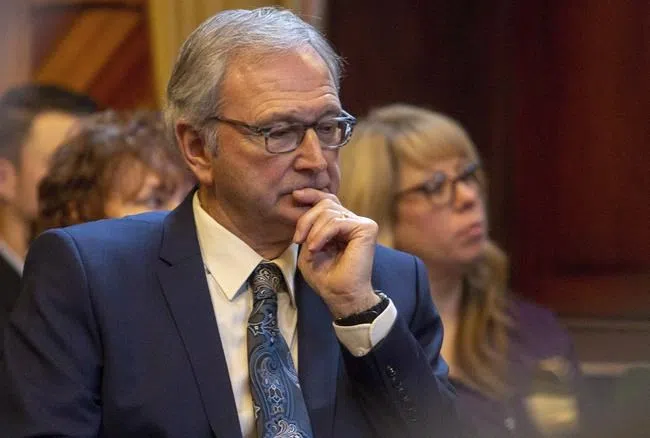
N.B. Tories survive throne speech vote, plan to amend ban on fracking
FREDERICTON — New Brunswick Premier Blaine Higgs says his government will change regulations to allow limited shale gas development — and could have it done before the end of the year.
The Tories’ throne speech passed 25-23 in the legislature Friday, a crucial victory on a confidence vote for the minority government.
It included a subamendment that urges government to allow limited natural gas development — if the regulations are changed, the Sussex, N.B., area would be the only location east of Ontario where fracking would be allowed.
Saint John Harbour Liberal MLA Gerry Lowe voted with the Tories and the People’s Alliance parties to support the fracking subamendment, but later voted with his party and the three Green members in opposition of the throne speech.
